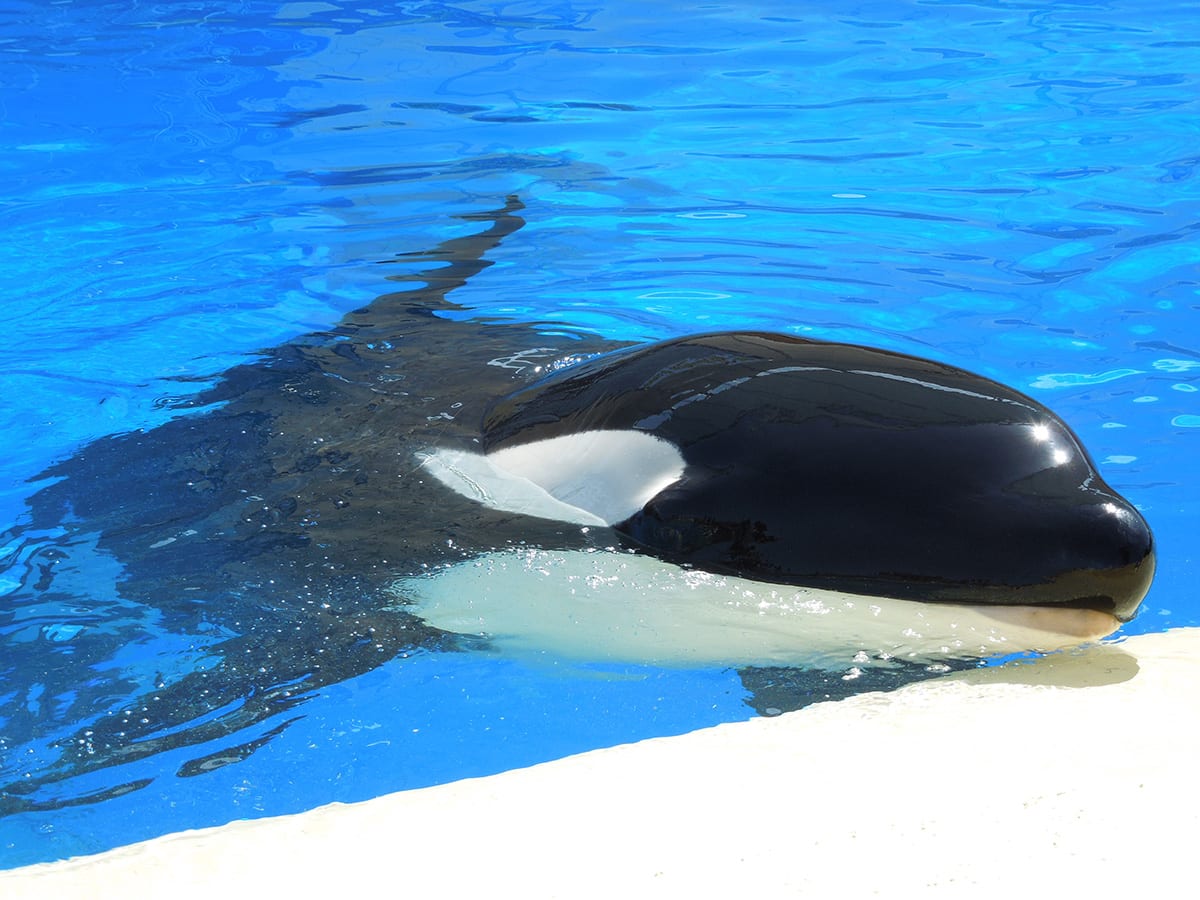A team of international scientists led by Curtin University’s Dr Klaus Lucke has confirmed that an immature killer whale found stranded off the Dutch coast in 2010 suffers from hearing loss.
 The female orca, dubbed Morgan, was found in a weakened state drifting in the shallow waters of the Dutch Wadden Sea near the island of Schiermonnikoog on 23 June, 2010. She was rescued and transported to the Dolfinarium Harderwijk in the Netherlands.
The female orca, dubbed Morgan, was found in a weakened state drifting in the shallow waters of the Dutch Wadden Sea near the island of Schiermonnikoog on 23 June, 2010. She was rescued and transported to the Dolfinarium Harderwijk in the Netherlands.
Dr Klaus Lucke, of Curtin’s Centre for Marine Science and Technology, said Morgan was diagnosed with dehydration and severe malnutrition. She was rehabilitated over the following year, before being transferred in 2011 to Loro Parque in Tenerife, Spain, at the request of a Dutch judge.
“Multiple hearing tests subsequently conducted by our team at the facility in Spain confirm that Morgan suffers severe hearing loss,” Dr Lucke said.
“Our study confirmed the suspicions of the trainers and veterinarians of Loro Parque, who had warned that the animal did not seem to respond to sound signals.”
Dr Lucke said the research team studied the hearing of several orcas at Loro Parque, using a method which detects brain waves in response to the emission of a sound.
“The test has been routinely used to determine the hearing of dolphins and small cetaceans, however its application to the acoustic study of orcas is relatively novel, given there is only one precedent with two individuals from 17 years ago,” Dr Lucke said.
“We were able to record brain responses to sound stimuli from all individuals, except for Morgan.”
The results of the study have been published in the peer-reviewed scientific journal Aquatic Mammals, the oldest peer-reviewed journal publishing papers on marine mammal science.
The paper explained that as with other delphinids, killer whales produce a wide variety of clicks, whistles and pulsed calls for echolocation and communication.
“As killer whales rely upon echolocation for navigation and foraging and use sounds intensively in social contexts, it was speculated that compromised hearing could significantly impact Morgan’s training, husbandry procedures and interactions with members of the same species,” the authors wrote.
“Moreover, the presence of a hearing impairment would be an important consideration in the assessment of her release prospects.”
Dr Lucke said the cause of Morgan’s hearing impairment was unknown, however the tests indicated that her hearing ability was at least 20 to 30 dB worse than the hearing sensitivity of other killer whales tested in the same facility.
Fellow researcher Dr Javier Almunia, of the Loro Parque Foundation in Spain, said based on the study findings, trainers had changed the way they tried to communicate with Morgan.
“Instead of the standard acoustic signals (whistles) to train the animal, they are now very successfully using visual signals such as underwater light,” Dr Almunia said.
“Morgan’s performance during training sessions for husbandry has improved since and she is now fully integrated into the orca group at Loro Parque.”
Morgan was moved to Loro Parque following a decision by the Dutch government, on the grounds that the facilities of Loro Parque were more appropriate to ensure her welfare.
Morgan currently exceeds 2000kg and eats more than 30kg of fish daily.
The research was conducted by Dr Lucke during his time working with IMARES in The Netherlands, in collaboration with Dr Almunia, Dr Dorian Houser of the U.S. National Marine Mammal Foundation and Dr James Finneran of the U.S. Navy Marine Mammal Program.


